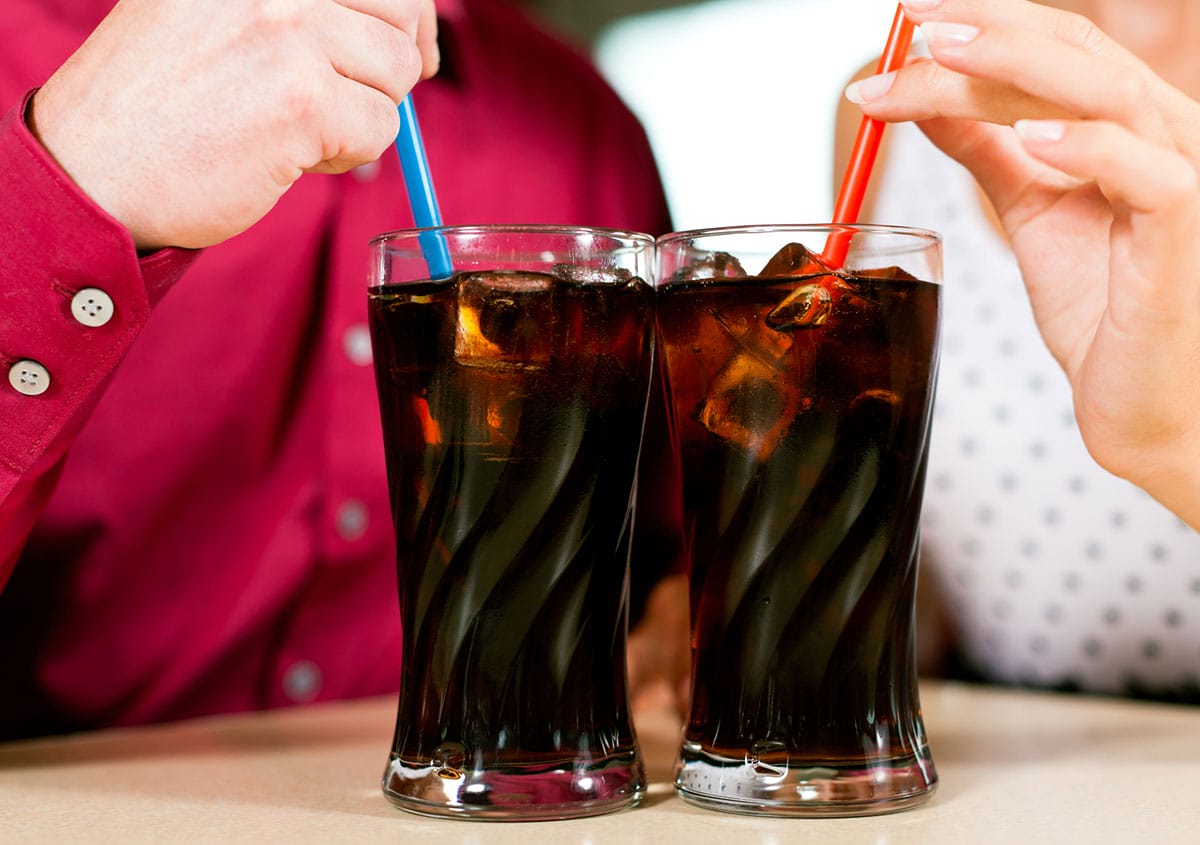
15
Dec
What Does Soda Do to Your Teeth?

It’s bubbly, sweet, and refreshing! What’s not to love about soda, pop, or soda-pop?
Well, if you ask a dentist (or dietician but for this article, we’re sticking to the topic of teeth), there’s plenty not to love about soda. If you’re a dentist, the biggest drawback of soda is the strong link between tooth decay, cavities, and soda consumption.
How Does Soda Affect Your Teeth?
The main reason why soda is so bad for your teeth is its high sugar content.
Your mouth is full of bacteria – even if you brush and floss your teeth regularly. These bacteria that produce acid as a waste product just happen to thrive on sugar.
When you drink a soda, you essentially bathe your teeth and the bacteria clinging to them in liquid sugar and, therefore, also acid.
How Acid Affects Your Teeth
Your teeth and their protective layer of tooth enamel are composed of minerals like calcium and fluoride. When exposed to acid, these minerals and the structure of your teeth are broken down through a process called demineralization.
The longer and more frequently your teeth are exposed to acid, the more demineralized and weaker your teeth become. As a result, teeth begin to develop soft spots in the enamel and eventually dental caries that lead to tooth decay, bacterial tooth infections, abscesses, and tooth loss.
Why Is Soda So Bad for Teeth?
Soda is exceptionally bad for teeth for a few reasons:
Firstly, soda tends to have an extremely high sugar content that provides a veritable feast to the bacteria in your mouth.
Instead of exposing a few teeth to sugar and acid at a time like chewing on a piece of candy might, soda usually exposes all of your teeth at once since it is a liquid.
Finally, most people enjoy sipping on a soda over several hours, rather than finishing it in a few minutes. This results in an extended time that teeth are exposed to sugar and acid while not being able to properly remineralize.
What About Sugar-Free Sodas?
The sugar contained in soda not only creates acid when consumed by bacteria in the mouth, but soda is actually highly acidic itself. Most sodas contain some combination of citric acid, phosphoric acid, and/or carbonic acid.
Although these acids in soda are usually fairly mild, they can still break down tooth enamel and exacerbate the overall ill effects of drinking soda. So, although choosing a soda that’s sugar-free or has less sugar is better than regular soda, your teeth still won’t be completely safe.
3 Tips for Drinking Soda More Safely
If you simply love soda too much to give it up, then we encourage you to practice the following soda-drinking safety tips to safeguard the health of your teeth.
- Use a Straw
Drinking soda or any sugary, acidic drink with a straw directs the drink to the back of your mouth and more directly into your throat for you to swallow. As a result, your teeth are not quite as thoroughly exposed to the sugars and acids in the beverage. - Enjoy Quickly
Slowing sipping on a soda throughout the day increases the time your teeth are exposed to sugar and acid. If you’re going to have a soda, drink it quickly to limit the time your teeth are exposed and the amount your tooth enamel will be demineralized. - Rinse With Water and Wait Before Brushing
Once you’ve finished drinking your beverage, you might think that brushing your teeth right away is the best thing to do. Brushing right away, however, can actually do more harm than good.
Right after exposure to sugar and acids, your tooth enamel will be weaker than usual. The abrasiveness of brushing right after eating or drinking can actually further damage your tooth enamel.
Instead, rinse your mouth out with water to flush away the sugar and acids remaining in your mouth. Then, wait for at least 20 to 30 minutes before you brush your teeth. By this time, your saliva will have had the opportunity to remineralize your tooth enamel with fluoride and calcium, restoring it to its normal strength.
Always Schedule Regular Dental Exams and Cleanings
Whether you choose to indulge yourself with the occasional soda or not, you should always plan to visit the dentist at least two times a year for a regular dental checkup and dental hygiene appointment.
Regular examinations give our dentists the opportunity to catch tooth decay in its earliest stages. As a result, we can often provide you with a professional fluoride treatment to remineralize any soft spots in your tooth enamel and prevent you from developing cavities altogether.
To learn more about preventing tooth decay or to schedule an appointment for your next dental checkup, we welcome you to contact Goochland Dentistry today.







